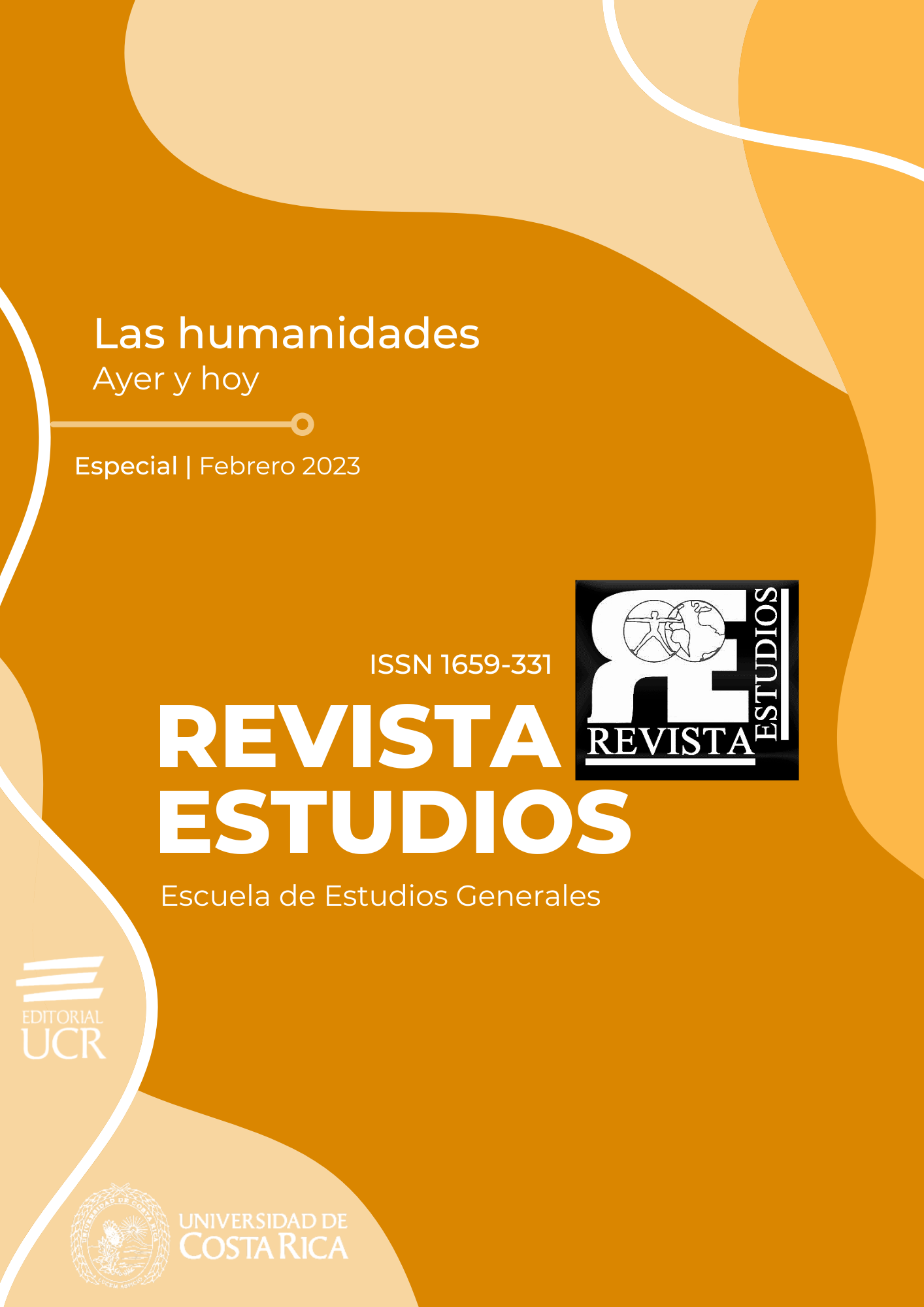Abstract
The article utilizes an epistemological framework (Khalifa, 2017) which facilitates loose definitions of the concepts of knowledge and explanation to contrast their scientific version with the philosophical one —specifically scientific knowledge with specifically philosophical knowledge—. Through this contrast, the particularities of explanation in each of these disciplines is revealed, as well as the kinds of questions that they aim to answer —open or closed— and the resources they use to do so —empirical or conceptual—. Based on the former, the main argument of this paper concludes that there are strong reasons to assume that the teaching of philosophy in itself promotes the teaching of cognitive and metacognitive skills that are not covered by the teaching of science, and that they are as relevant as the ones that it does cover. Furthermore, it is shown that there is a clear lack of quantitative studies to back this conclusion, and that it is important to fill this academic void moving forward.
References
Akturk, A. O., y Sahin, I. (2011). Literature Review on Metacognition and its Measurement. Procedia - Social and Behavioral Sciences, 15, 3731–3736. https://doi.org/10.1016/j.sbspro.2011.04.364
Dinsmore, D. L., Alexander, P. A., y Loughlin, S. M. (2008). Focusing the Conceptual Lens on Metacognition, Self-regulation, and Self-regulated Learning. Educational Psychology Review, 20(4), 391–409. https://doi.org/10.1007/s10648-008-9083-6
Floridi, L. (2008). The Method of Levels of Abstraction. Minds and Machines, 18(3), 303-329.
Floridi, L. (2013). What is a philosophical question?. Metaphilosophy, 44(3), 195-221.
García-Moriyón, F., Rebollo, I., y Colom, R. (2005). Evaluating Philosophy for Children: A Meta-Analysis. Thinking: The Journal of Philosophy for Children, 17(4), 14–22. https://doi.org/10.5840/thinking20051743
Geelan, D. (2012). Teacher Explanations. En B. J. Fraser, K. Tobin, y C. J. McRobbie (Eds.), Second International Handbook of Science Education (pp. 987–999). Springer Netherlands. https://doi.org/10.1007/978-1-4020-9041-7_65
Gettier, E. (1963). Is Justified True Belief Knowledge? Analysis, 23(6), 121–123.
Gilbert, J. K. (2005). Visualization: A Metacognitive Skill in Science and Science Education. En J. K. Gilbert (Ed.), Visualization in Science Education (pp. 9–27). Springer Netherlands. https://doi.org/10.1007/1-4020-3613-2_2
Grüne-Yanoff, T. (2014). Teaching philosophy of science to scientists: Why, what and how. European Journal for Philosophy of Science, 4(1), 115–134. https://doi.org/10.1007/s13194-013-0078-x
Hofer, T., Przyrembel, H., y Verleger, S. (2004). New evidence for the Theory of the Stork. Paediatric and Perinatal Epidemiology, 18(1), 88–92. https://doi.org/10.1111/j.1365-3016.2003.00534.x
Holbrook, J., y Rannikmae, M. (2007). The Nature of Science Education for Enhancing Scientific Literacy. International Journal of Science Education, 29(11), 1347–1362. https://doi.org/10.1080/09500690601007549
Kaplan, A. (2008). Clarifying Metacognition, Self-Regulation, and Self-Regulated Learning: What’s the Purpose? Educational Psychology Review, 20(4), 477–484. https://doi.org/10.1007/s10648-008-9087-2
Khalifa, K. (2017). Understanding, Explanation, and Scientific Knowledge. Cambridge University Press. https://doi.org/10.1017/9781108164276.
Kornblith, H. (2010). Belief in the Face of Controversy. En Disagreement, ed. Feldman, R. y Warfield, T. 29 - 52. Oxford: Oxford University Press.
Lange, M. (2013). What makes a scientific explanation distinctively mathematical?. The British Journal for the Philosophy of Science, 64, 485-511.
Norris, T. (2015). Philosophical Questions about Teaching Philosophy: What’s at Stake in High School Philosophy Education? Philosophical Inquiry in Education, 23(1), 62–72. https://doi.org/10.7202/1070366ar
Plant, B. (2012). Philosophical diversity and disagreement. Metaphilosophy, 43(5), 567-591.
Rawls, J. (1999). A Theory of Justice. Harvard University Press.
Rescher, N. (1985). The strife of systems: An essay on the grounds and implications of philosophical diversity. University of Pittsburgh Press.
Reutlinger, A. (2017). Explanation beyond causation? New directions in the philosophy of scientific explanation. Philosophy Compass, 12(2), 1-11. https://doi.org/10.1111/phc3.12395
Salmon, W. C. (1984). Scientific explanation and the causal structure of the world. Princeton University Press.
Stokes, P. (2012). Philosophy Has Consequences!: Developing Metacognition and Active Learning in the Ethics Classroom. Teaching Philosophy, 35(2), 143–169. https://doi.org/10.5840/teachphil201235216
Topping, K. J., y Trickey, S. (2014). The role of dialog in philosophy for children. International Journal of Educational Research, 63, 69–78. https://doi.org/10.1016/j.ijer.2013.01.002
Trickey, S., y Topping, K. J. (2004). ‘Philosophy for children’: A systematic review. Research Papers in Education, 19(3), 365–380. https://doi.org/10.1080/0267152042000248016
Van Fraassen, B. (1980). The scientific image. Oxford University Press
Williamson, T. (2011). Knowledge First Epistemology. En Sven Bernecker y Duncan Pritchard (eds.), The Routledge Companion to Epistemology. Routledge. pp. 208-218.
Williamson, T. (2017). Model‐Building in Philosophy. En R. Blackford y D. Broderick (Eds.), Philosophy’s Future (1a ed., pp. 159–171). Wiley. https://doi.org/10.1002/9781119210115.ch12
Woodward, J. y Ross, L. (2021). Scientific Explanation. The Stanford Encyclopedia of Philosophy. N. Zalta (ed.). https://plato.stanford.edu/archives/sum2021/entries/scientific-explanation/
Woodward, J. (2003). Making things happen. Oxford University Press.
Yan, S., Walters, L. M., Wang, Z., y Wang, C.-C. (2018). Meta-Analysis of the Effectiveness of Philosophy for Children Programs on Students’ Cognitive Outcomes. Analytic Teaching and Philosophical Praxis, 39(1), Art. 1.
Zohar, A. y Barzilai, S. (2013). A review of research on metacognition in science education: Current and future directions. Studies in Science Education, 49(2), 121–169. https://doi.org/10.1080/03057267.2013.847261

